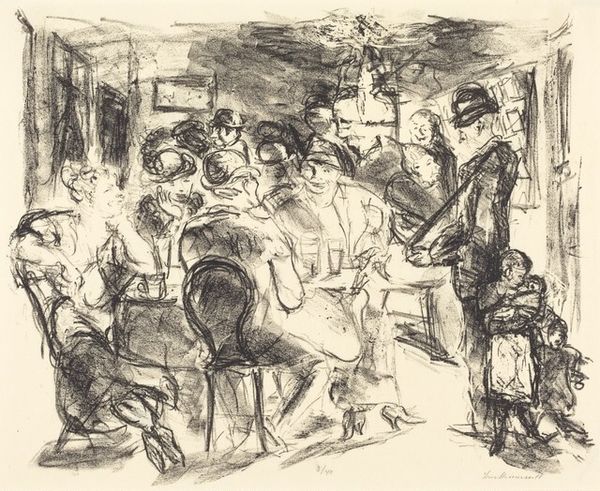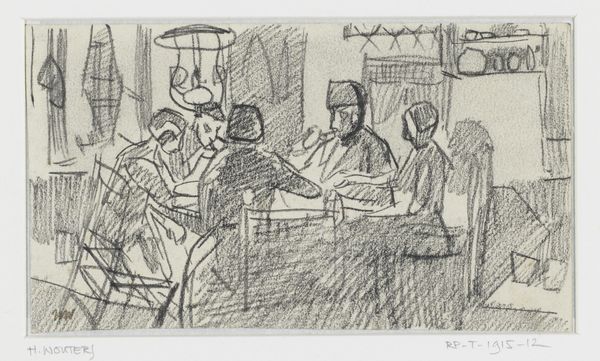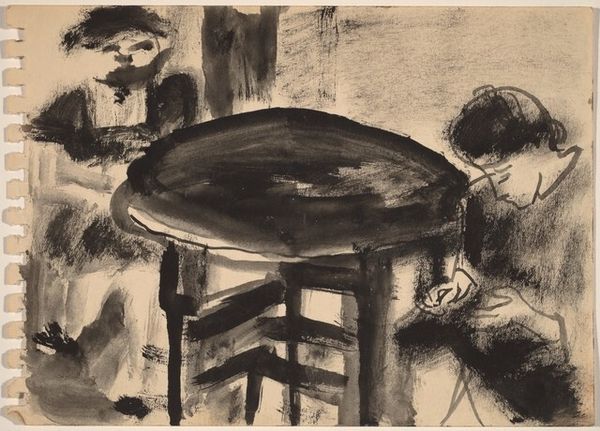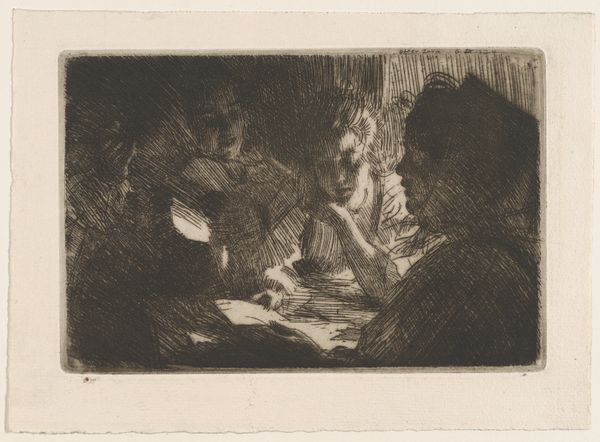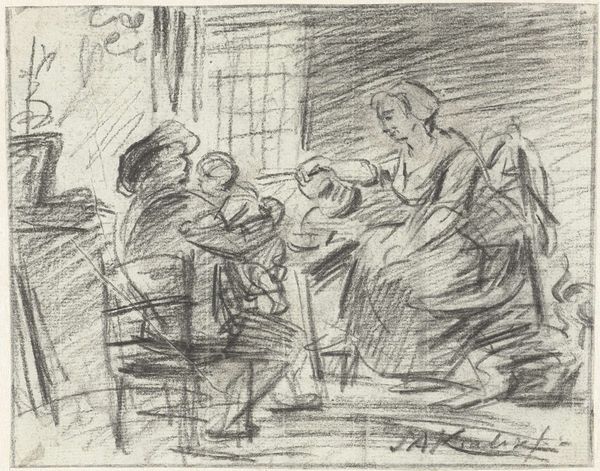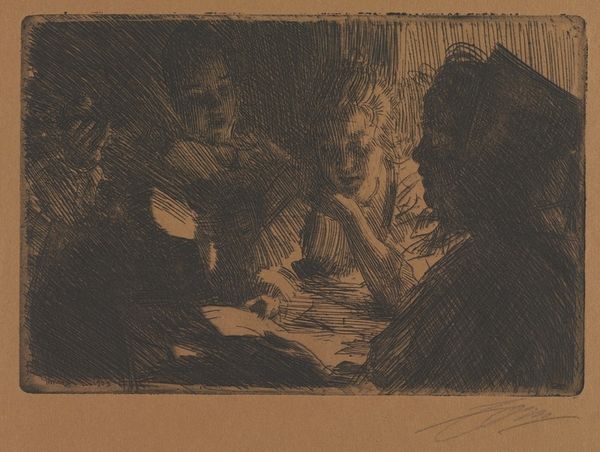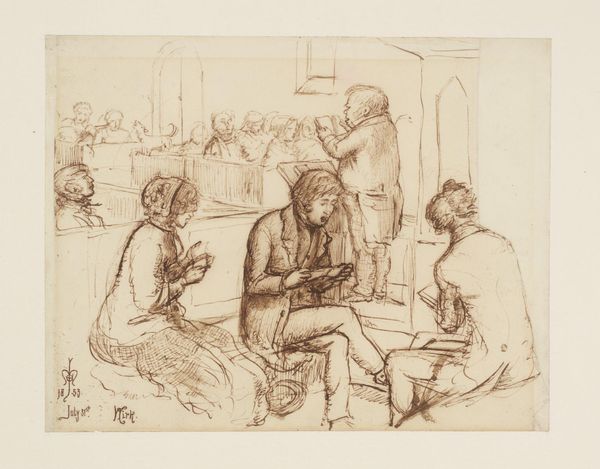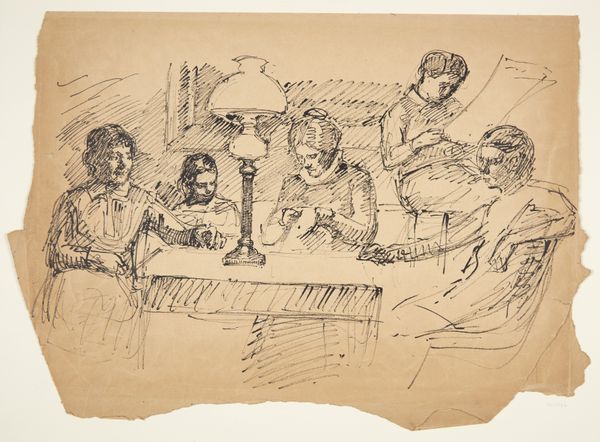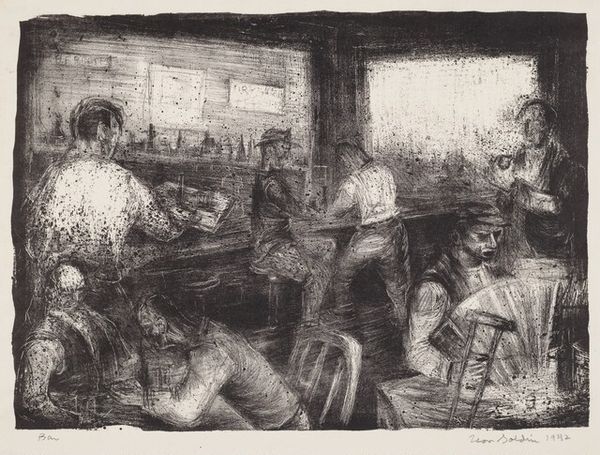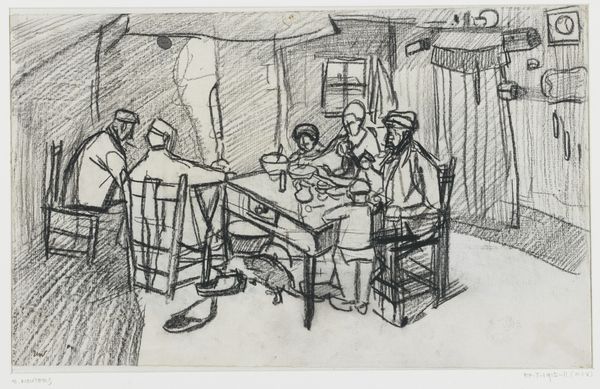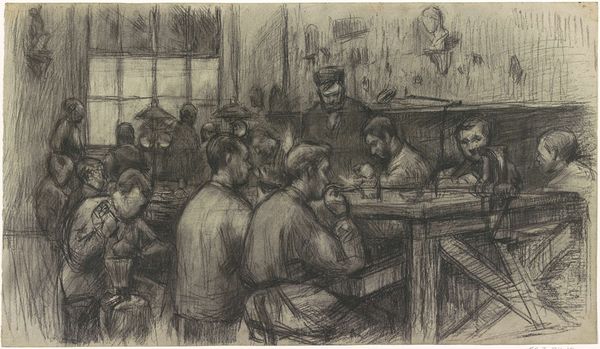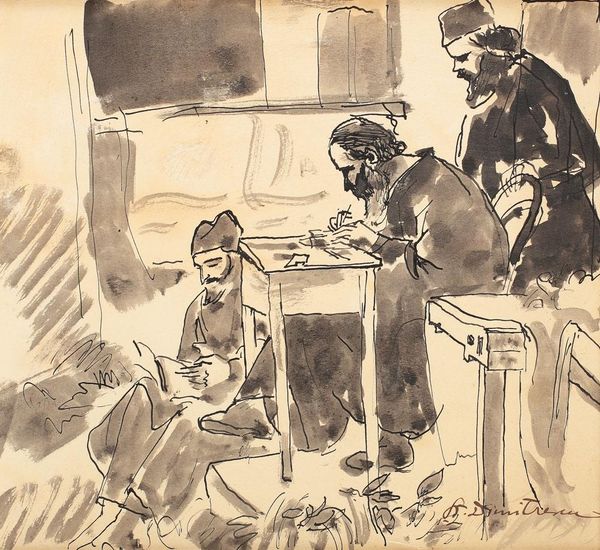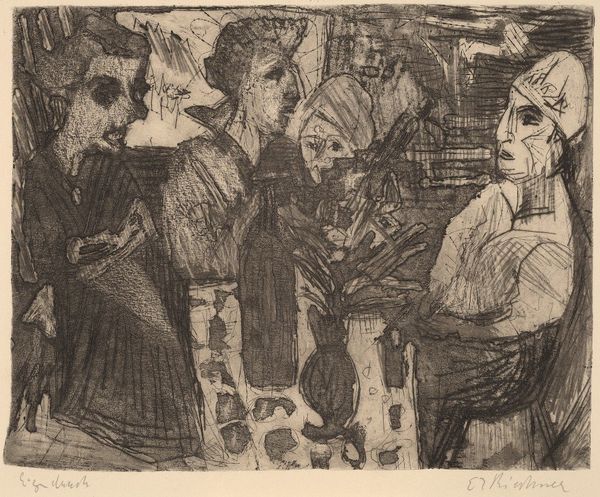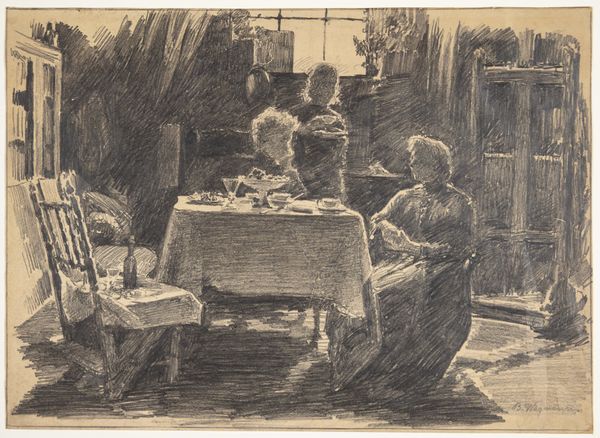
Dimensions: image: 441 x 560 mm
Copyright: © Zsuzsi Roboz | CC-BY-NC-ND 4.0 DEED, Photo: Tate
Editor: This lithograph is called "Dressing Room" by Zsuzsi Roboz. The medium looks so tactile, almost like charcoal, which makes the scene feel very immediate and intimate. What strikes you about the process and materials? Curator: The lithographic process itself is fascinating. The use of a stone matrix and greasy crayon creates a rich, almost velvety texture, mimicking the intimacy of the dressing room. Consider the labour involved: grinding the stone, creating the image, proofing, and finally, the printing itself. How does this labour influence our understanding of the final image? Editor: It's almost like a performance in itself, far removed from our digital age! Curator: Precisely. And think of the social context. Dressing rooms are spaces of transition, often associated with performance and identity. Roboz's choice of lithography, a more accessible printmaking method, democratizes this intimate scene, offering it to a wider audience for consumption and contemplation. Does it challenge the traditional boundaries between high art and everyday life? Editor: Absolutely, this makes me see "Dressing Room" with fresh eyes, appreciating both the artist's labor and its wider cultural context. Curator: Indeed, by focusing on the materiality and production, we gain a deeper understanding of the artwork's meaning and impact.
